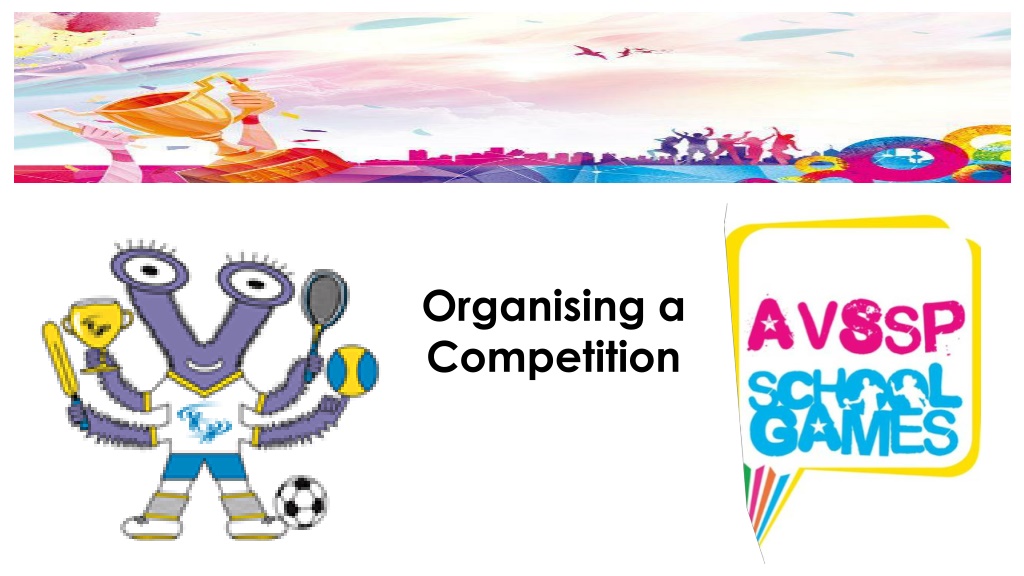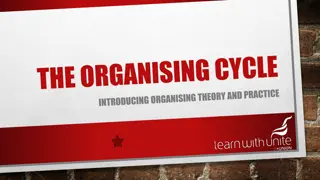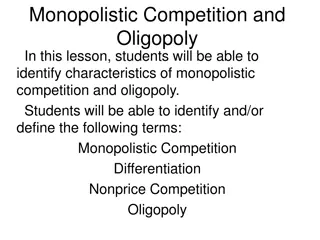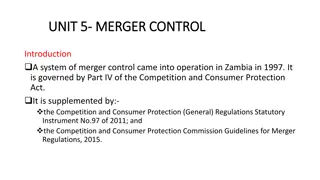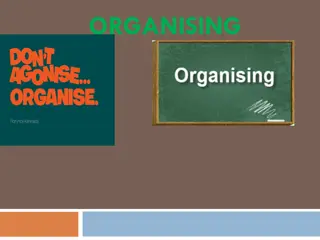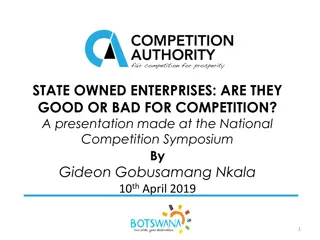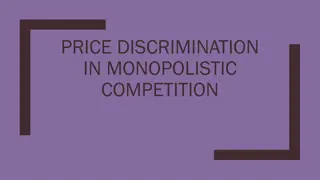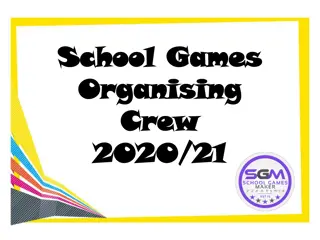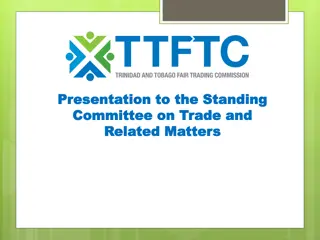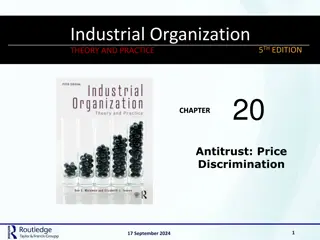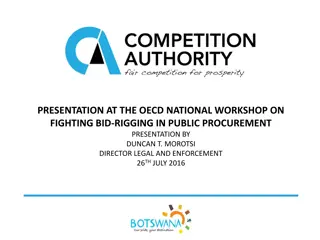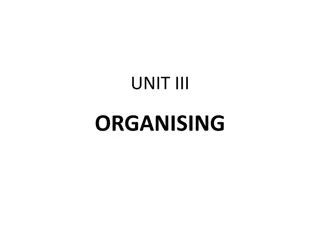Essential Tips for Organising a Successful Competition
Discover the key elements for planning, organizing, and delivering a successful competition, including making it inclusive, safe, and engaging for all participants. Learn about different types of competitions and assess their positives and negatives using the SMILES framework. Get valuable insights on factors like prizes, safety, player enjoyment, and more!
Uploaded on Sep 18, 2024 | 0 Views
Download Presentation

Please find below an Image/Link to download the presentation.
The content on the website is provided AS IS for your information and personal use only. It may not be sold, licensed, or shared on other websites without obtaining consent from the author.If you encounter any issues during the download, it is possible that the publisher has removed the file from their server.
You are allowed to download the files provided on this website for personal or commercial use, subject to the condition that they are used lawfully. All files are the property of their respective owners.
The content on the website is provided AS IS for your information and personal use only. It may not be sold, licensed, or shared on other websites without obtaining consent from the author.
E N D
Presentation Transcript
Organising a Competition
How to organise competitions Objectives: Make the competition appropriate so all pupils can participate All pupils enjoy the competition
What makes a successful competition? Most Important Task: Complete the Diamond 9 for you There are ? Statements to chose from Prizes Activities are easy to do Players improve their skills There is no waiting time Safe Everyone can take part Respect Fun Fair Players feel good even if they lose It is challenging chance to try new activities Players make new friends Players try their best Least Important
Plan, Organise and Deliver a Successful Competition Think about? Target group? The activity? How many teams? What type of competition? Plan fixtures / order of play Everyone has different reasons for enjoying and taking part in competition as different things motivate people However there are some common factors known as SMILES. What will you need? Equipment Rules / Officials Timekeepers Venue S safe participants feel physically and emotionally safe M maximum participants participates are fully involved all of the time I inclusive activities are designed to suit all participants needs and abilities L learning participants develop new skills or knowledge E equipment participants interests and motivations are catered for S success all participants feel a sense of achievement
Organising a Competition / Festival Getting organised: 1. The event sport, what type of competition 2. Date / Time 3. Venue 4. Budget 5. Who to invite year group? Gender? how many teams? 6. Rules for the event 7. Officials / Volunteers who? How many? Responsibilities? 8. Complete Health and Safety checks 9. Produce order of plays, scorecards, result sheets, certificates
Types of competitions Assess this competition using SMILES - Positives Negatives Knockout people play a game and if they lose they are knocked out Assess this competition using SMILES -
Types of competitions Assess this competition using SMILES - Positives Negatives Round Robin everybody plays everybody else. Teams earn points for winning/drawing or losing a game.
Types of competitions Assess this competition using SMILES - Positives Negatives Ladder everybody is ranked in a certain activity, the best players play with the best and the lower level players play with their equivalent. People can move up and down the ladder
Types of competitions Assess this competition using SMILES - Positives Negatives Personal Challenges individuals improve their own score over a period of time
Officiating Every sport has officials that take on different roles: 1. Referee / Umpire 2. Scoring 3. Judging 4. Timing Job of a referee / umpire - Know the rules Be able to blow a whistle Be able to make a decision and stick to it Do not allow players to question your decision Be firm but fair Know the scoring system What to do? for an Invasion game 1. Blow whistle 2. What rule was broken? (offside) 3. What is the consequence? (indirect freekick) 4. Who gets the ball? (blue team)
These are the School Games Values that players and officials should follow at all times.
